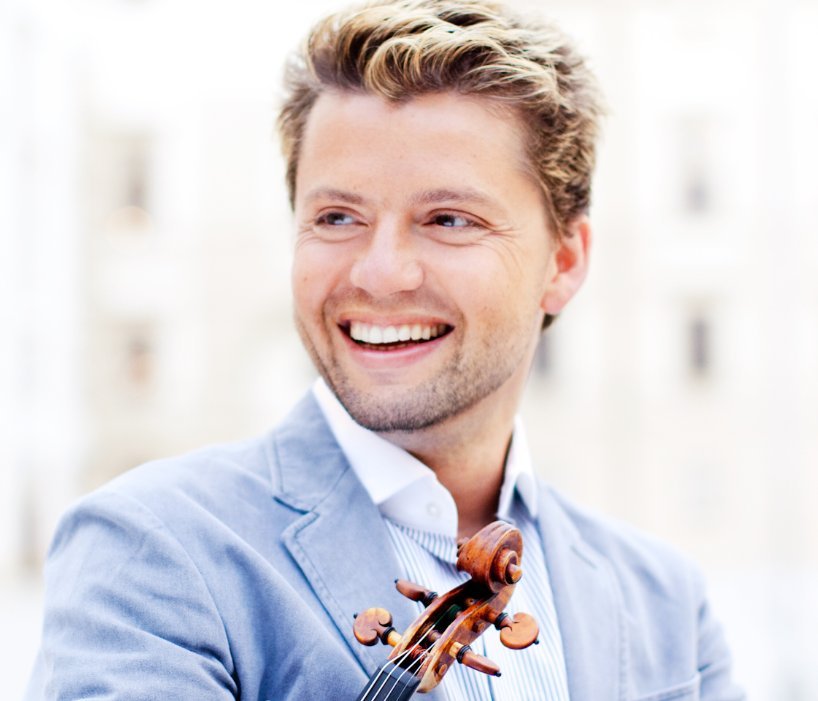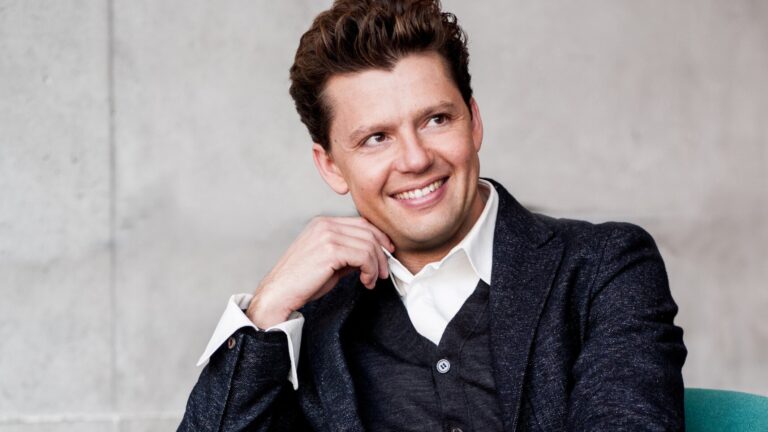He is one of the greatest violinist of our time, but now we can also see him as a conductor. Julian Rachlin will perform a Mozart–Salieri programme with the Hungarian National Philharmonic Orchestra 10th March at Liszt Academy.
– You have performed quite many times in Hungary. What are your experience so far?
– I love coming to Hungary, it is a very dear country to me. Every time I perform in Hungary, especially in Budapest, is a great highlight. The public is not only knowledgeable in music, but also really enthusiastic.
It is great to see what an amazing concert life there is between Vienna and Budapest. Austrian and Hungarian traditions are all connected in some way. My new position as an artistic director of the Esterházy Palace in Eisenstadt is a good example for this.
– Have you ever worked with the Hungarian National Philharmonic?
– I remember very well I played with Zoltán Kocsis. It was a wonderful experience to work with him, he was a great artist. But that was many years ago, so I am very much looking forward to the concert with the orchestra. This time I come back as a conductor, and it is also a great honour and joy for me.
– What are the main differences between conducting and playing the violin?
– Conducting and playing are completely different worlds. It is like comparing futball and tennis. I believe both professions have to be learned equally seriously. I have been studying conducting for the last 17 years, and it is not something just to come out on stage and suddenly to be a conductor. It is a great responsibility, but also a wonderful experience to share the music with a whole orchestra, and to have a beautiful journey altogether starting from the first rehearsal until the last concert.
– Do you think it is an advantage that you are originally a violinist?
– It can be an advantage. At the beginning when the orchestra does not know you as a conductor, they are waiting to see: can he conduct or not? You need to be convincing in your concept, preparation and interpretation. But if you managed to convince the orchestra, it is a beautiful advantage.

– In the concert at Liszt Academy you will perform works by Mozart and Salieri. What were the main aspects when you put this programme together?
– It was a joint decision together with the orchestra. They wanted to have a Mozart–Salieri programme. It is very interesting to include a work by Salieri who was also a celebrated composer in the time of Mozart and Haydn. For example, Salieri was the teacher of Schubert and Beethoven. He was a very important figure, he was composing a lot for the Habsburg family at the royal court. He was a very respected gentlemen who everybody wanted to have around. In opposition of him, Mozart was little bit the crazy genius. I think it is interesting to see a piece of Salieri next to the works of Mozart.
– Was the violin concerto in G major your choice? Anyway, which is your favourite violin concerto from Mozart?
– My favourite concertos from Mozart are the piano concertos. For violin it is the Sinfonia concertante which was written for violin, viola and orchestra. But I think No. 3, 4 and 5 are also fantastic concertos, the one in G major is also a very intimate concerto. It fits very well into the programme because we start with the violin concerto, then we go to the Haffner Symphony, and after the Salieri we finish with the last symphony of Mozart. The dramaturgy creates an interesting development.
– Which other composers are you mostly concerned about right now?
– I have a lot of pieces that I am working on: I will be conducting my first opera, Le Nozze di Figaro at the Vienna Volksoper. I am also preparing Berlioz’s Symphonie Fantastique, the Brahms Symphony No. 2, and Rimsky-Korsakov’s Scheherazad. I focus very much on building my conducting repertoire.
– As you mentioned you are the artistic director of Herbstgold Festival in Eisenstadt. What are your main goals and expectations?
– I am very honoured to have this position. The Esterházy Palace in Eisenstadt is full of history. Many works by Haydn were world-premiered in this hall. Putting together the programme and inviting incredible artists is an amazing challenge. The goal is to establish Herbstgold as one of the finest and exclusive festivals in Europe.
This year we are starting for the next 3 years a new orchestra in residence, the Chamber Orchestra of Europe. We have amazing artists coming: for example Juan Diego Flórez, András Schiff, or the very young Spanish violinist, Maria Dueñas who is now one of the big stars of young generation. Furthermore, as the great highlight of the festival the legendary Hollywood actor, John Malkovich is coming for a very special project.
– What about Maestro Valery Gergiev? As I read he had been already invited before the war between Ukraine and Russia began.
– Maestro Gergiev is one of the greatest musicians of our time. It was always a great honour to be on stage with him. But given the circumstances every single organization has distanced themselves from him because he did not comment against the war. For us in the Esterházy Foundation it is natural to give a sign of solidarity with the victims. This is the way that music can say: we do not agree with this terrible war.











